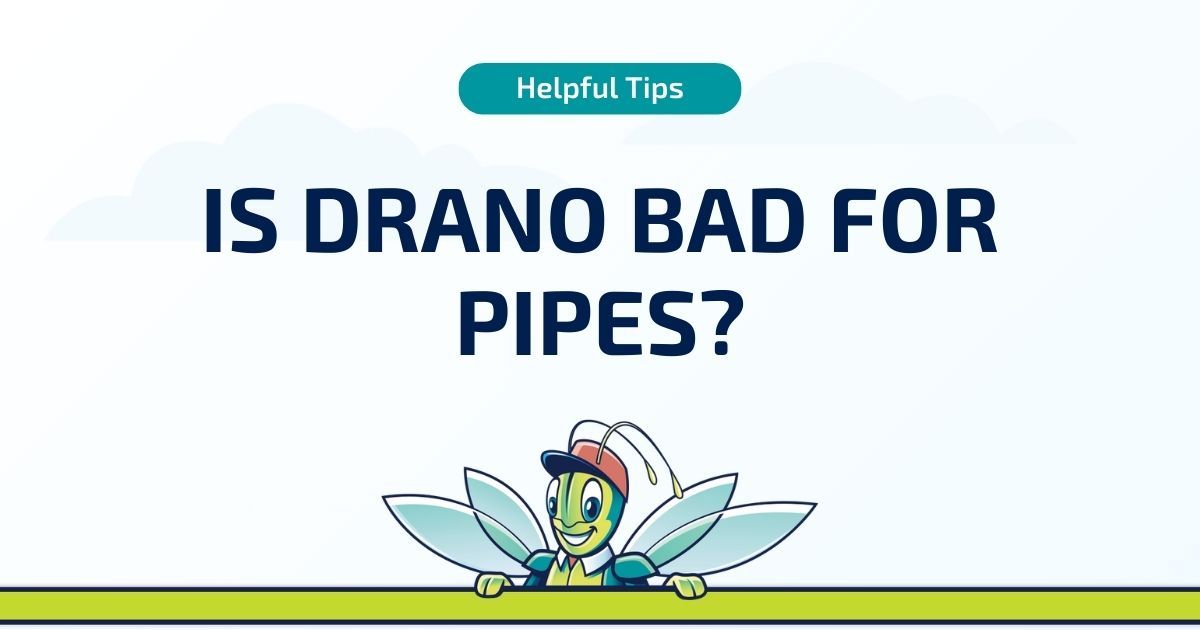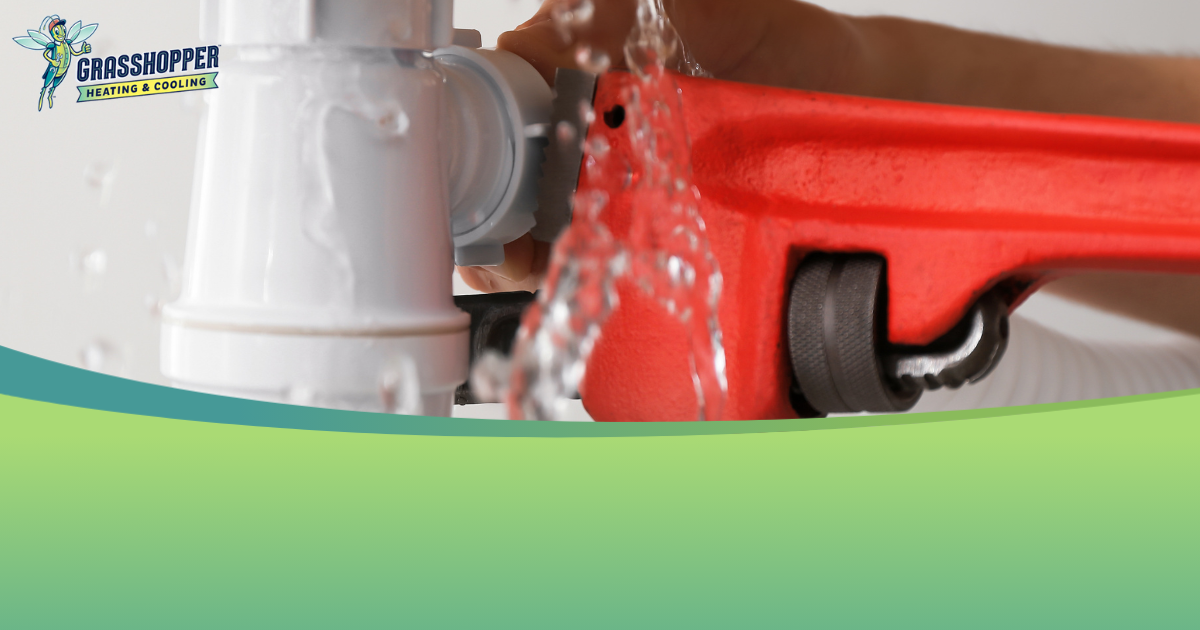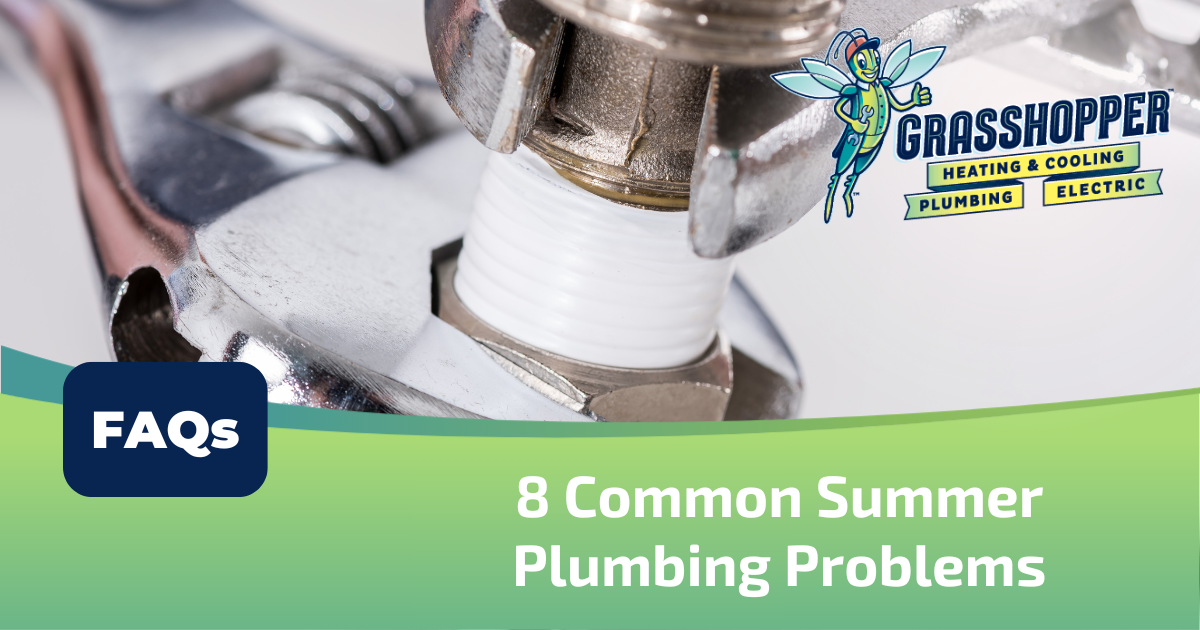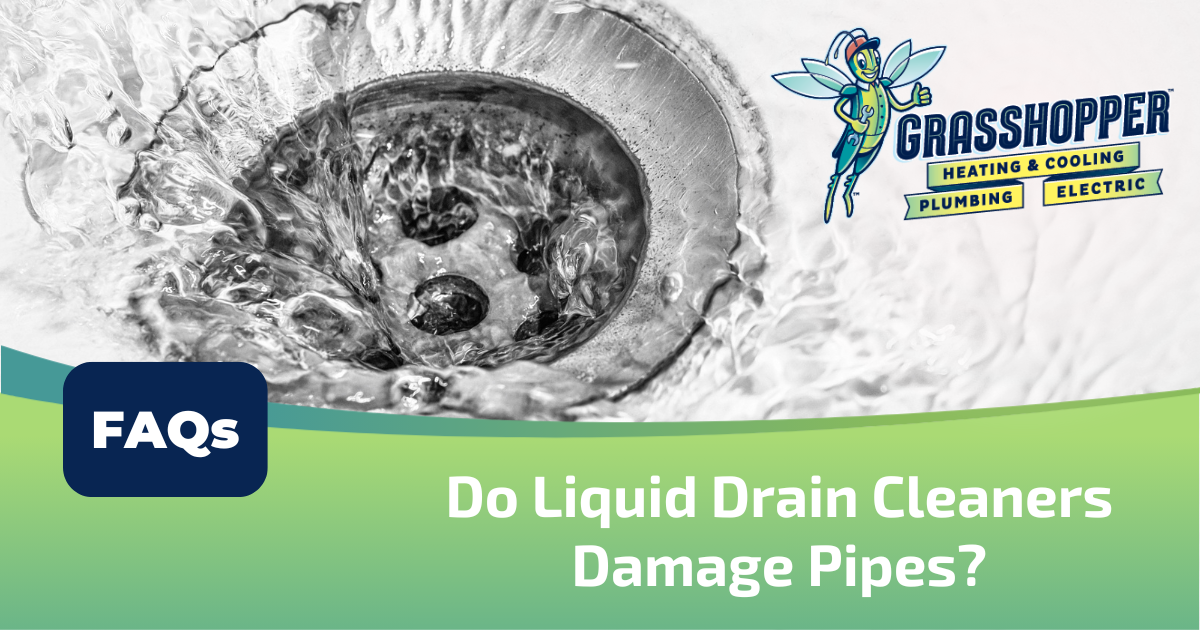Is Drano Bad for Pipes?
At Grasshopper Heating & Cooling, we want to let you in on an industry secret: your professional plumber hates when you use liquid Drano and similar chemical drain cleaners. Homeowners increasingly ask, “Is Drano bad for pipes?” The short answer is yes. These substances can corrode PVC pipes and other parts of your plumbing system.
However, the effects of liquid plumber products go beyond potentially costly repairs. Find out why our plumbers advise against using them below.
Why Is Drano Bad for Pipes?
Drano is a brand of liquid drain cleaner that breaks down clogged material in household drains. It contains lye or sodium hydroxide which effectively dissolves organic matter trapped in a clogged sink. Other brands might add sulfuric acid to their formulas to quickly break down blockages.
However, the way it works can damage pipes, septic systems, and drains by:
- Corroding PVC or plastic pipes by melting the materials.
- Melting plastic components in your kitchen or bathroom sink.
- Destroying the delicate ecosystem responsible for breaking down waste in your septic system.
If you use Drano or similar chemical cleaners to combat a clogged drain, consider other drain cleaners that have less harsh effects. After all, your preferred chemical solution might damage more than your plumbing system.
Other Reasons to Avoid Pouring Chemical Drain Cleaners Down Your Bathroom Sink
Chemical drain cleaners wreak havoc on the environment. When Drano exits your septic system or municipal sewage system, it infiltrates the local water supply. It can make its way into natural bodies of water or subterranean fresh water.
Its corrosive composition kills countless organisms, from helpful bacteria and fungi to aquatic plant and animal life. These disastrous consequences jeopardize local ecosystems, disrupting the delicate food chain that balances native flora and fauna populations.
Unclogging Drains While Protecting Your Plumbing System
What alternatives can you use if Drano is bad for pipes and wildlife? You might be surprised at the household products you have on hand to combat a clogged toilet or bathtub drain. Discover some easy, safe DIY methods to unclog and clean your drain pipes below.
Drain Snakes
You can purchase a drain snake from almost any retailer with household cleaning products. These long, pronged tools are your first line of defense against a blocked kitchen drain. Once you notice standing water collecting in a plumbing fixture, insert the drain snake into the drain opening.
Push it as deep as you can. The prongs will snag the offending material and pull it up when you remove the snake.
Boiling Water
This option is readily available and perfect for your kitchen sink. Sometimes, grease, fat, and other food particles harden against your drain pipe, forming a blockage. An oily or greasy clog dissolves after you pour hot water down the drain.
Dish Soap
Liquid dish soap gently lifts grime, grease, and organic matter from inside toilet bowls and sink drains. While many people only use it for hand-washing dishes, it also doubles as a multi-surface cleaner and safe yet persistent plumbing solution. Use it sparingly if you have a septic tank, as it may kill helpful bacteria populations.
Vinegar and Baking Soda
Remember the volcanic science project from grade school? This remedy applies that fun, nostalgic activity to household problems. First, pour boiling water into the blocked drain.
Then, shake one or two cups of baking soda into the fixture. Follow up with an equal amount of vinegar. Voila!
Baking soda and vinegar have additional benefits, such as:
- Whitening and brightening your toilet bowl.
- Deodorizing your garbage disposal.
- Cleaning your dishwasher or washing machine.
Both ingredients are must-haves for your household maintenance duties.
Contact Grasshopper Heating & Cooling for More Stubborn Clogged Drains
Is Drano bad for pipes? Unfortunately, this popular product isn’t just bad. It’s the worst.
Use our drain cleaning recommendations instead. If you encounter a clog you can’t defeat, call 518-545-3271 to schedule plumbing and drain cleaning services in Clifton Park, Albany, and the surrounding areas with Grasshopper Heating & Cooling.



